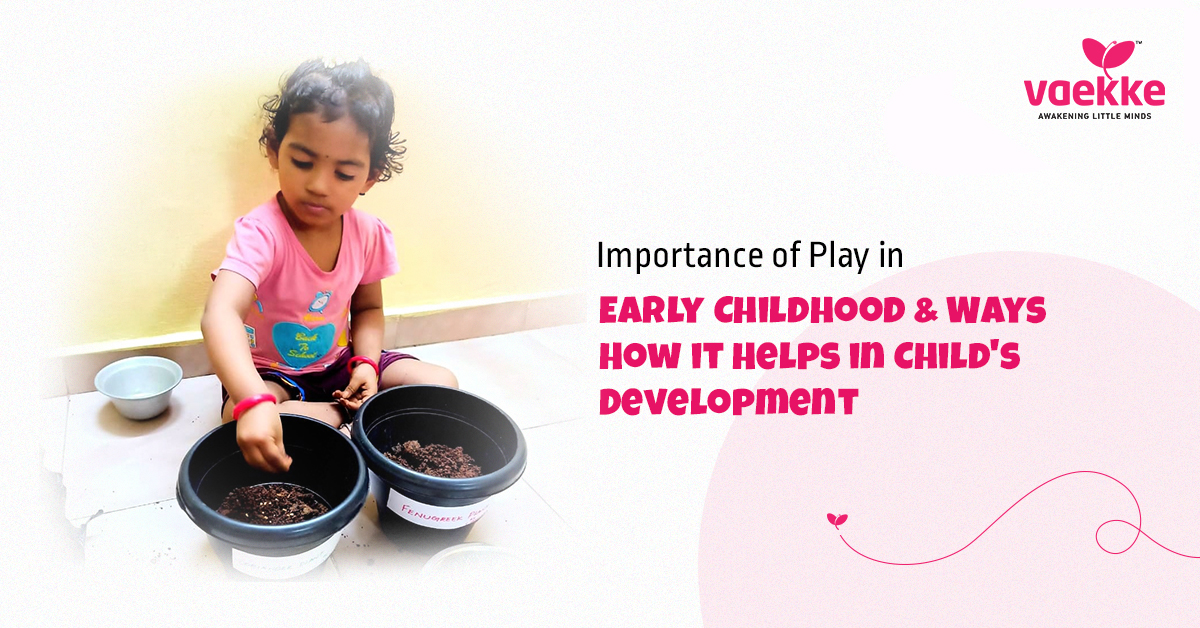Edu World !
The Vaekke EYFS blog

Importance of Play in Early Childhood & Ways How it Helps in Child’s Development
At the surface level, play can seem a trivial endeavor that serves to just keep a child entertained. But there’s more to it than meets the eye. Child’s play can be educational just as much as it is fun. It can be a great avenue for little ones to pick up skills and guide early year development in a way that wouldn’t be possible otherwise. Consequently, our infographic today deep dives into the catalyzing power of play on childhood development.

Play in a child’s early years is more crucial than ever. As children play they begin to explore their feelings and learn new ways of expressing themselves. As a result, they gain a lot of new skills. Here are the amazing benefits of play in a child’s early year development.
Things parents should need to know about play
- Children learn through play
- Play is healthy
- Play benefits your child’s development
- Play reduces the stress
- Play teaches through experience
- Play and learning go hand-in-hand
- Play teaches them how to overcome challenges
- Play helps them address failures and rise above it
Play builds
- Gross motor skills
- Fine motor skills
- Interpersonal skills
- Creative skills
- Social skills
- Problem-solving skills
- Executive functioning skills
- Sensory skills
Benefits of play
- Faster learning and better memory
- Improves creative thinking
- Promotes self-confidence
- Improves communication and vocabulary
- Impulse control and emotion regulation
- Social competence and more empathy
- Better health and physical development
- Life lessons learning
- Better relationship
Kids who play more,
- Are very creative
- Have healthier heart
- Have a higher IQ
- Are less likely to be obese
- Have better language skills
- Gain better emotional regulation
- Exhibit greater impulse control
Kids who play grow up to be people who,
- Think for themselves and with-stand peer pressure
- Assume responsibility for their words and actions
- They are able to see options and choices in their life
- Want to be their own person with their own ideas
- Value creativity and originality
- They are full of their own plans and goals
- They are self-directed learners
- They are interested and curious
Parent’s role in your child’s playtime. Here are some ideas for getting involved:
- Jump right in – Playing together with them helps build a foundation for trusting relation
- Forget the rules – Encourage exploration and creative play as it develops imagination
- Think like a child – Play with toys and safe house utilities in new ways with them
- Take a break – watch them if they are happy while playing if they seem bored re-direct their activity
- Participate Enthusiastically – Be a part while your child play and encourage them to explore
- Let your child guide – Allow them to pick an activity and decide how to play
Vaekke helps parents identify and create quality learning experiences for their kids!
